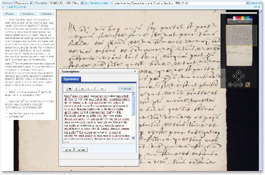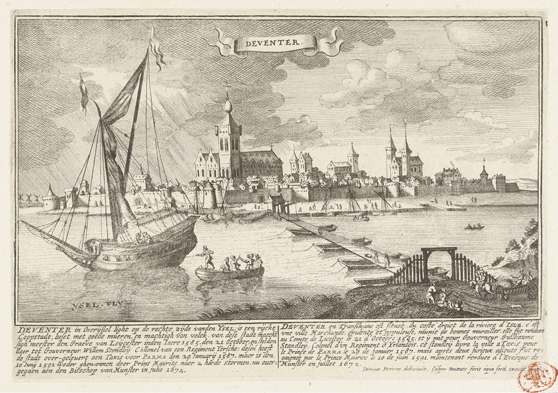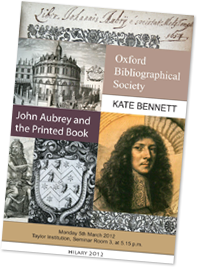As part of their recent strategic alliance with Queen Mary, University of London, the Centre for the Study of the Renaissance at the University of Warwick has announced two Postdoctoral Research Fellowships, one based at Queen Mary and one at Warwick, on the theme of ‘Networks and Information Technologies, 1300-1800’. To form part of the collaborative project ‘Rewiring the Renaissance: Cultural Networks and Information Technologies’, the Fellows will explore modes of communication and networking in the Renaissance period, from letter writing to orality, and develop IT-led modern mechanisms which can capture and analyse the Renaissance communities that were constructed. Projects that explore cultural transmission in any media or European language are welcome; in addition, the Queen Mary Postdoctoral Research Fellow will be expected to have the skills that will allow for an interrogation of the ways in which we communicate historical information in a digital world.
The deadline for applications is Friday, 11 May 2012. For background information on the collaboration, further details about the two posts, and to apply, please visit the project webpage. Please send informal enquiries to Dr Penny Roberts.

Having stumbled across a discussion, inter alia, of early modern sleep and nocturnal activity in an article on the BBC News website, I found myself deep in EMLO this week on the elusive trail of sleeping patterns and experiences. As you might expect, cacophonous night-time irritants – cockerels, ostlers ‘scraping horses down and removing stones from their hooves’, fellow academics and students discoursing in the small hours – conspired to rob the worthy of their peace at night. We find poor Comenius and Johan Christoph Wolf suffering from insomnia, the latter ‘prostrated’ as a result. Sir John Cotton records being ‘indisposed for want of sleep’, and Narcissus Marsh finds himself so overworked he is rendered ‘unable to stand without help and more fit to sleep than write’. Dutch scholar and poet Nicolaas Heinsius the elder deserves our sympathy. Clearly a poor sleeper, he makes repeated reference to sleeplessness in letters spanning from 1650 to 1680, and the problem seems to have become especially acute towards the end of his life. Had he known of her, he might have envied the unfortunate unnamed woman, the subject of a curious case recorded in 1723, who slept ‘continuously for more than 6 weeks’ (presumably she was in some sort of coma).
Tips and recommendations for more effective slumber abound. To aid sleep, I found remedies of a cowslip mixture prescribed by Sir Hans Sloane to a long-suffering patient, and advice to Arthur Charlett, should he wish to sleep during the day, to indulge himself but to ‘sleep in a chair & not lying down’. The best counsel, however, came from none other than our own Jan Amos Comenius who, in a letter to a young man called Jindřich Dobříkovský, suggested dividing the day, taking eight hours for sleep, eight for work and study, and eight for recreation. All wonderfully wholesome and wise. As late as 1785, John Scott Hylton was writing to the Reverend Mark Noble with rules for ‘healthy living (light supper, bed and asleep by 11: nocturnal studies as bad as nocturnal revels)’. No excuse, then, for either of these gentlemen dropping off in the library.
Miranda is editing metadata from the Bodleian card catalogue of correspondence for our union catalogue Early Modern Letters Online. On a regular basis, she brings us hand-picked and contextualised records.
Snooze Button
 A beta version of the correspondence of the sixteenth-century naturalist Carolus Clusius (1526-1609), developed by the Huygens ING (KNAW) and the Scaliger Institute (Leiden University Libraries), is now available online. Created with eLaborate, the online transcription platform developed by Huygens ING, the site currently features fully searchable transcriptions of 450 letters, but metadata on all known letters together with scans of 1,300 letters in the Leiden University Library are also included. Scholars in the field of the history of science, students of languages and paleography, and anyone seriously interested in the history of botany are invited to participate in the ongoing refinement of the resource, contributing new transcriptions, or improving existing texts. For further information and a link to the beta, please visit the Project webpage.
A beta version of the correspondence of the sixteenth-century naturalist Carolus Clusius (1526-1609), developed by the Huygens ING (KNAW) and the Scaliger Institute (Leiden University Libraries), is now available online. Created with eLaborate, the online transcription platform developed by Huygens ING, the site currently features fully searchable transcriptions of 450 letters, but metadata on all known letters together with scans of 1,300 letters in the Leiden University Library are also included. Scholars in the field of the history of science, students of languages and paleography, and anyone seriously interested in the history of botany are invited to participate in the ongoing refinement of the resource, contributing new transcriptions, or improving existing texts. For further information and a link to the beta, please visit the Project webpage.
On Thursday 3 May Florike Egmond from the Clusius Project will be sharing a paper on Clusius, collecting, and practices of scientific illustration in our third annual seminar series. For her talk and seven other exciting contributions, please visit the seminar webpage.
 Much of the seventeenth century was blighted by conflict, and the Thirty Years’ War, which stretched the length and breadth of Europe, affected every aspect of life. The implications for educational institutions and resulting intellectual networks and traditions were wide-ranging, and as such the Bodleian cards refer frequently to the effect of the conflict on universities and those teaching and studying within them. For example, in today’s card – sent on 3 February 1641, when war had been raging for over twenty years – John Christenius (1599-1672) laments the ‘injurious effect’ of the pan-European conflict on ‘the quality of the intake and studies at his university’. The original card compiler speculated that this letter might have been written from Deventer (where Erasmus had been at school a century and a half before, and the economic decline of which was attributed to religious war), and in Dirk van Miert‘s Humanism in an Age of Science: The Amsterdam Athenaeum in the Golden Age, 1632-1704 we read that from 1637 Christenius had indeed held a position at the newly formed Deventer Athenaeum. As students rush their work, emerging ‘unfit for a profession or status’, Christenius suggests to Gerardus Joannes Vossius (1577-1649), professor of history at Amsterdam’s Anthenaeum Illustre, that a teacher capable of inspiring the ‘studiously inclined young men to cultivate their minds towards a more scholarly standard’ be found, recommending the appointment of Hamburg-born Johann Frederick Gronovius (1611-1671). This suggestion met with approval and, following travels in England, France, and Italy, Gronovius was duly appointed professor of rhetoric and history at Deventer, a post he retained until his transfer to Leiden in 1658.
Much of the seventeenth century was blighted by conflict, and the Thirty Years’ War, which stretched the length and breadth of Europe, affected every aspect of life. The implications for educational institutions and resulting intellectual networks and traditions were wide-ranging, and as such the Bodleian cards refer frequently to the effect of the conflict on universities and those teaching and studying within them. For example, in today’s card – sent on 3 February 1641, when war had been raging for over twenty years – John Christenius (1599-1672) laments the ‘injurious effect’ of the pan-European conflict on ‘the quality of the intake and studies at his university’. The original card compiler speculated that this letter might have been written from Deventer (where Erasmus had been at school a century and a half before, and the economic decline of which was attributed to religious war), and in Dirk van Miert‘s Humanism in an Age of Science: The Amsterdam Athenaeum in the Golden Age, 1632-1704 we read that from 1637 Christenius had indeed held a position at the newly formed Deventer Athenaeum. As students rush their work, emerging ‘unfit for a profession or status’, Christenius suggests to Gerardus Joannes Vossius (1577-1649), professor of history at Amsterdam’s Anthenaeum Illustre, that a teacher capable of inspiring the ‘studiously inclined young men to cultivate their minds towards a more scholarly standard’ be found, recommending the appointment of Hamburg-born Johann Frederick Gronovius (1611-1671). This suggestion met with approval and, following travels in England, France, and Italy, Gronovius was duly appointed professor of rhetoric and history at Deventer, a post he retained until his transfer to Leiden in 1658.
According to other EMLO records, Gronovius was no stranger to the city. In 1631 he was writing from there and, by January 1644, the scholarly situation at the Athenaeum appears to have improved to such an extent under the auspices of its new star professor that Vossius praises the ‘great flow of good works from G’s. university and hopes that this will stimulate the senators of G’s. city, renowned for its academic traditions and as the place where Erasmus studied, to provide further for the dissemination of the university’s world-wide fame through monumental works of genius and learning’. Although he encountered problems – see the complications concerning one particular ‘homicidal maniac’ – Gronovius found his lectures ‘well attended’, and it’s a relief to find a productive pedagogical outcome despite (or perhaps even because of) the persistent maelstrom of war.
Miranda is editing metadata from the Bodleian card catalogue of correspondence for our union catalogue, Early Modern Letters Online. On a regular basis, she brings us hand-picked and contextualised records.
Launch Record of the Week
 Our very own Kate Bennett will deliver an Oxford Bibliographical Society lecture on John Aubrey and the Printed Book at the Taylor Institution on Monday 5 March at 5.15pm. John Aubrey is not known primarily for his publications, but for his manuscripts, including his letters, which the Project is editing for publication and calendaring within Early Modern Letters Online. This is often construed negatively, as a failure to print. In her lecture, Kate will reconstruct and explore Aubrey’s complex relationship with printed texts, through his library (full of annotated books), his relations with publishers, his interest in bibliography and the history of the book, and through the libraries of others which he consulted. She will also examine his relationship with the books of those with whom he collaborated, including Anthony Wood and Robert Plot. She will consider how Aubrey balanced print and manuscript as a way of avoiding the risks involved in printing modern histories and lives; and, ultimately what the printed book meant to him. All are welcome!
Our very own Kate Bennett will deliver an Oxford Bibliographical Society lecture on John Aubrey and the Printed Book at the Taylor Institution on Monday 5 March at 5.15pm. John Aubrey is not known primarily for his publications, but for his manuscripts, including his letters, which the Project is editing for publication and calendaring within Early Modern Letters Online. This is often construed negatively, as a failure to print. In her lecture, Kate will reconstruct and explore Aubrey’s complex relationship with printed texts, through his library (full of annotated books), his relations with publishers, his interest in bibliography and the history of the book, and through the libraries of others which he consulted. She will also examine his relationship with the books of those with whom he collaborated, including Anthony Wood and Robert Plot. She will consider how Aubrey balanced print and manuscript as a way of avoiding the risks involved in printing modern histories and lives; and, ultimately what the printed book meant to him. All are welcome!
Following on from November’s workshop, a second installment of Across the Channel: Intellectual Relations between England and France in the Early Modern Period will take place at the Maison Française D’Oxford on Tuesday 28 February 2012. Organised by Martine Pécharman and our very own Philip Beeley, this boutique event will allow five invited scholars to explore Anglo-French exchanges from a variety of perspectives in the context of rich case studies. For the full programme, see the workshop webpage; all are welcome.
Cultures of Knowledge hopes to collaborate on and co-produce a third Across the Channel workshop later in 2012. Watch this space!




 Much of the seventeenth century was blighted by conflict, and the Thirty Years’ War, which stretched the length and breadth of Europe, affected every aspect of life. The implications for educational institutions and resulting intellectual networks and traditions
Much of the seventeenth century was blighted by conflict, and the Thirty Years’ War, which stretched the length and breadth of Europe, affected every aspect of life. The implications for educational institutions and resulting intellectual networks and traditions  Our very own
Our very own 
 Join
Join 